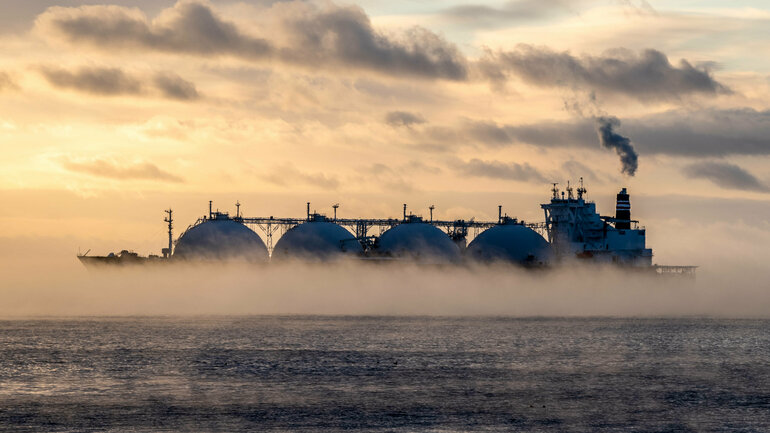Energy Headaches for the G7

Energy issues will be at the top of the agenda when G7 climate, energy, and environment ministers meet in Berlin on 25–27 May. While in principle there is unity among G7 states about drastically reducing their energy dependence on Russia, important tensions simmer below the surface. As my detailed study of Russian energy export chains has revealed, to understand these tensions it is essential to look at the way in which energy markets function differently for different energy goods. This can be seen in particular with oil and liquefied natural gas (LNG).
Oil: market segmentation and relations with the G20
The G7 meeting is likely to bring to the fore tensions between the group and its sister organisation, the G20. In a joint communiqué on 8 May, G7 leaders pledged to phase out or ban imports of Russian oil, but such a move will make little difference to Russia’s income as long as the country can sell its oil elsewhere. And there are willing takers, for example India, which, since Russia’s invasion of Ukraine in February 2022, has imported twice as much oil from Russia as it did in all of 2021.
In this context, market segmentation helps explain the attractiveness of Russian oil. Different types – or ‘brands’ – of oil, which vary in terms of their refining characteristics, have different prices. As many Western buyers move away from Russian Urals oil, its price relative to the global benchmark, Brent, has declined significantly since February. It is therefore a key challenge for G7 leaders to offer states such as India incentives to participate in Western sanctions on Russia – or to apply some level of pressure or even secondary sanctions. With India’s Prime Minister Narendra Modi invited as a special guest to the G7 meeting – apparently in an attempt to wean India off its ties with Moscow – these issues will be very much at the forefront of participants’ minds.
LNG: Japan’s problematic investments in Russia
There are also tensions in the G7 itself. A key issue concerns Japanese investments in Russian energy. As late as 9 May, Japanese Prime Minister Fumio Kishida, while announcing that Japan would gradually phase out imports of Russian oil, qualified this pledge by saying that the country would do so while ‘maintaining its interests in oil and gas projects in the Russian Far East’. This goes against both the spirit of EU and US sanctions and the practice of the world’s largest energy companies, such as Shell and BP, which have sought to exit their investments in Russia.
At issue are Japan’s investments in Russian LNG production facilities: the Japanese consortium SODECO’s 30 per cent stake in Sakhalin-1; Mitsui and Mitsubishi’s combined 22.5 per cent share in Sakhalin-2; and the 10 per cent joint stake held by the Japan Oil, Gas, and Metals National Corporation (JOGMEC) and Mitsui in Novatek’s Arctic LNG 2 project, which is scheduled to start production in 2025. While Japan sources only 9 per cent of its LNG imports from Russia, the general increase in LNG prices in Asian markets means that giving up access to these volumes will likely push up prices in a market that is already overheated by keen competition for LNG, given new European demand.
In general, the LNG market is considered to be very liquid and thus more like the oil market than the natural gas market, but it is also segmented according to contract types. Procuring supplies in the spot market has become especially competitive, as cargoes may even change destination mid-ocean in reaction to higher prices in other markets. Japanese investments in Sakhalin-2 allow Japanese energy companies to receive guaranteed offtakes of LNG from the project, which amount to nearly 10 million tonnes per year. Exiting this investment would likely affect these contracts.
Threats and opportunities
Japan’s official line on why it will not give up these investments is that if it were to do so, assets and volumes of LNG could be picked up by Russia and China, making energy imports more costly for Japan in the long term. This is very much in line with the findings of my book Russian Energy Chains: the Remaking of Technopolitics from Siberia to Ukraine to the European Union, which shows that Ukraine’s and EU states’ participation in Russian energy export chains has been characterised by both threats and opportunities – and even by temptation. This was seen after Russia’s invasion of eastern Ukraine in 2014, when European states not only continued their imports of Russian fossil fuels but also increased them. Thus, it is not surprising for Japan to take a similar position now.
But with the EU and the US radically rethinking their energy import policies, this position is no longer politically tenable. Observers can only hope that as a result of the G7 discussions, Japan will take a stronger position on quitting its Russian energy entanglements. Without such commitments, G7 attempts to convince India to join sanctions on Russia will not be credible.
Margarita M. Balmaceda is Professor of Diplomacy and International Relations at Seton Hall University.